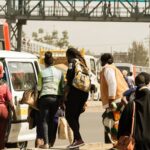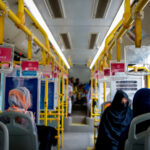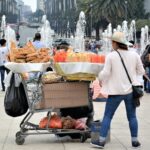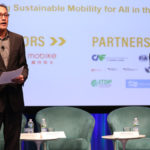Posts tagged with 'gender equality'
Colombia is currently updating its Nationally Determined Contribution (NDC), which will be submitted to the United Nations Framework Convention on Climate Change (UNFCCC) later this year. This update aims to highlight Colombia’s national priorities, such as biodiversity and food security, ...

The evidence is clear: the climate crisis is not gender neutral. Climate change is a threat multiplier. As instability intensifies, women are increasingly subject to conflict and its externalities, including gender-based violence and persecution. And because women are disproportionately represented ...

COP30 in Belém, Brazil, will be the most substantial and strategic mechanism for local and subnational governments to influence and impact national and global sustainability agendas in 2025. As we gear up for the mid-year Bonn Climate Conference, it is ...

For the 21 million residents of Lagos, Nigeria, climate change is not a distant concept — it is a current reality. Over the past decade, the city has experienced devastating floods, exacerbated by the loss of over half of its wetlands ...

Alexandra Township is a 20-square-block enclave in the heart of Johannesburg, South Africa’s northern suburbs. Established in 1902, the township was built to house 750,000 residents. Today, it is home to more than 1.2 million. Despite efforts to increase waste ...

For a woman living in an African city, public transport can be a daunting experience. Women usually plan their trips in advance, and consider a multitude of factors before setting out: What is the safest way to reach the bus ...

A key objective of the Clean Air Catalyst is to exchange knowledge, build trust and foster opportunities to elevate the voices of those most impacted by air pollution, particularly women and low-income communities. Funded by the U.S. Agency for International ...

For decades, urban transportation policy and practitioners have favored a model of analysis that prioritizes increasing the speed of vehicles and the time saved for people as a result. While this may make sense on an intuitive level, it is ...

For decades, the city of Peshawar, in the Khyber Pakhtunkhwa province of northern Pakistan, has been rocked by wars and acts of terrorism that disrupted public safety and made it difficult to plan the city’s growth. A particularly challenging consequence ...

Water for human consumption is increasingly inaccessible, due to poor management, degradation of water sources, the effects of climate change and more. Marginalized groups — such as minorities, rural communities and women — are disproportionately affected by water security issues, and women often play a key ...

Cities around the world are slowly realizing that gender dynamics play an important role in how people interact with transport systems. Taken as groups, women and men tend to have different travel patterns, different safety concerns, and even make different ...

On June 10, Arvind Kejriwal, the chief minister of Delhi, announced a new proposal to make public transport free for women. Once cleared, the move – which will cost approximately ₹700 crore ($100 million) to the Delhi government – will make ...

Nearly 60 percent of women in Britain feel unsafe walking alone in their cities. Seventy percent of women who use public transport in Mexico City have experienced gender-based violence. In too many cases, using public transport in cities is an ...

Why is Transforming Transportation (TT) 2019 focused on new mobility? Tech-driven disruptions in transport are already having huge impacts on our cities, said Ani Dasgupta, global director of WRI Ross Center for Sustainable Cities. “What do we need to do ...

Beyond the technological revolution underway in transport today, gender was an underlying theme of Transforming Transportation this year. Transport is not gender neutral, not matter where you are, said a chorus of experts during the opening panel on day two. “Gender is often a more robust determinant of modal choice than ...






























